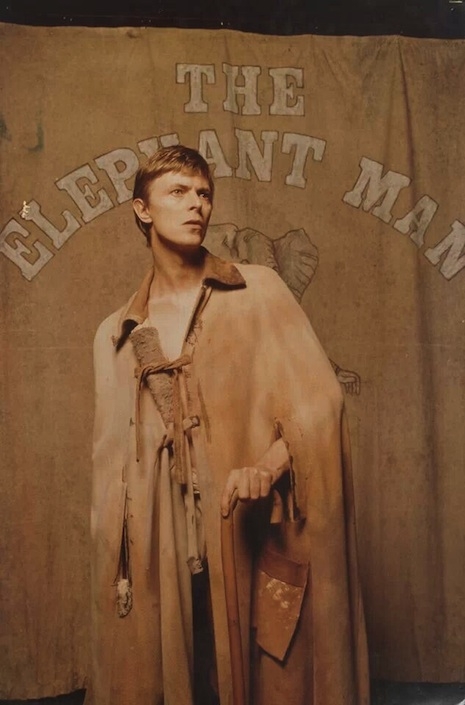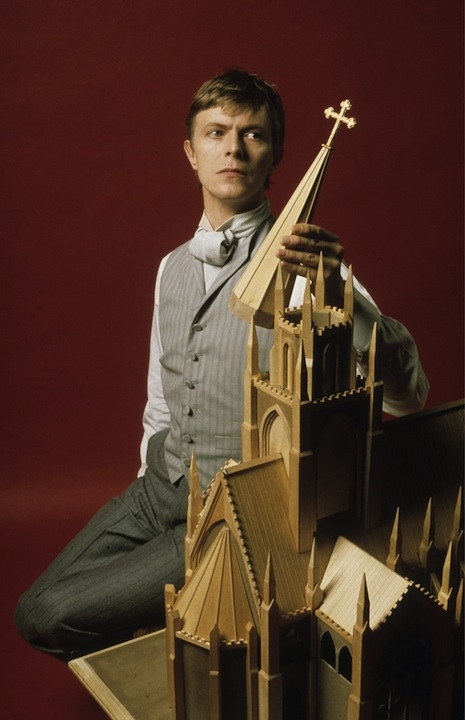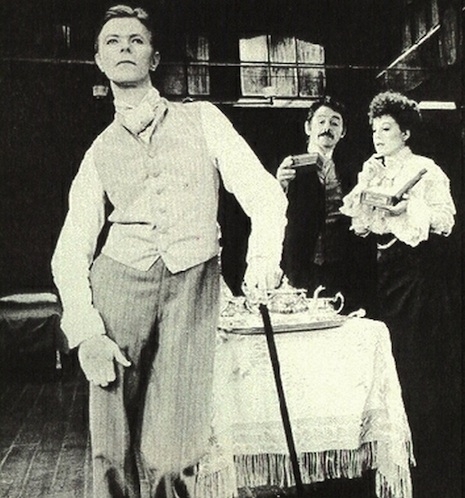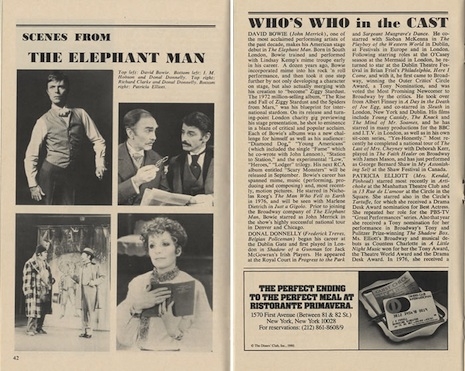
The stage director Jack Hofsiss called David Bowie up one day to ask him if he wanted to take over the lead as Joseph Merrick in a production of The Elephant Man. The actor who was playing Merrick, Philip Anglim, was quitting the role and Hofsiss needed a replacement immediately. Bowie had 24-hours to make-up his mind.
Bowie had spent the past year on a world tour and recording a new album Scary Monsters (and Super Creeps) when Hofsiss called. While many would have wilted at the thought of the arduous work involved in starring in a stage play, Bowie jumped at the offer. He joined the cast in San Francisco and began rehearsing his role.
Any suggestion that Bowie’s casting was just a novelty star billing to squeeze a few more dollars out of the play were soon quashed when the cast saw the sincerity and effort Bowie put into getting his performance right. Ken Ruta who played Doctor Treves was “unequivocal about his leading man”:
“[David] was incredible. Right on the money.”

Joseph (or as he is called in the play John) Merrick was born in England in 1862 and developed a strange and still “unknown” medical condition that caused him to suffer severe deformity in his features and bone structure, leaving him disfigured. Unable to find work, Merrick was exhibited in a freak show as “The Elephant Man.” He was eventually rescued by Frederick Treves, who became his close friend and patron.
Bowie first heard of Merrick when he was a teenager after reading about “The Elephant Man” in a book on circus freaks and human oddities (which also included a chapter on A. W. Underwood, the “Paw Paw Blowtorch.”) He later said he always had an interest in freaks and those on the edges of society and claimed their lives and experiences informed his writing.
It was certainly a stroke of genius to cast Bowie as Merrick as he brought an otherworldliness to the role and revealed a sensitivity rarely seen in his music or stage persona of Ziggy Stardust or the Thin White Duke.
As part of his research for playing the role, Bowie visited the London Hospital to examine Merrick’s bones and the cardboard church he had built which formed the centrepiece to the play—a outward symbol of Merrick’s search for peace and harmony.

Bowie performed the role without make-up and each evening forced his body into painful and twisted positions to become Merrick. His co-star Ruta said there was “a basic honesty” to his performance, but his best gift was his ability to listen to other’s dialog when acting. As Paul Trynka wrote in his biography of Bowie Starman:
His fellow actors found Bowie’s physical transformation into Merrick equally impressive. ‘He seemed to have captured that—better than all the other ones who wanted to be glamorous. He wasn’t doing glamour, he was doing Merrick,’ says Jeanette Landis. When Ken Ruta later watched John Hurt play Merrick, swamped under prosthesis, in the movie The Elephant Man, he found the experience far less involving.
As the play toured, the productions were mobbed by Bowie fans who wanted to see their pop idol or steal some personal belonging or item of clothing—even used cigarette butts were taken. Bowie took to carrying a few belongings in a cardboard suitcase and rather than living with the cast in an upmarket hotel, he stayed in rundown rented apartments where no one but a select few could find him.
However, the incessant attention from fans could be terrifying as it was utterly relentless. In Chicago a group of young female punks stalked the show attending every performance. On the final night, the group of six girls suddenly made a move for the stage. “It was instantaneous,” Ken Ruta told Bowie’s biographer:
“They were all tackled from the sides by I don’t know how many plain-clothes men. And they were carrying something in their purses, metallic—they were there to do something dirty. It was cuckoo that night.”
The production ran at the Booth Theater in New York from September 1980 to January 1981, where it received rapturous reviews with Bowie being singled out for special praise. The show was a sellout, with the opening night attended by John Lennon, Yoko Ono, David Hockney and Andy Warhol. During Bowie’s brief Broadway run, Lennon was assassinated by Mark Chapman.


In October 1980, Tim Rice interviewed David Bowie in new York for the BBC TV show Friday Night, Saturday Morning. Bowie talked about The Elephant Man, working in theater and his album Scary Monsters (and Super Creeps).





